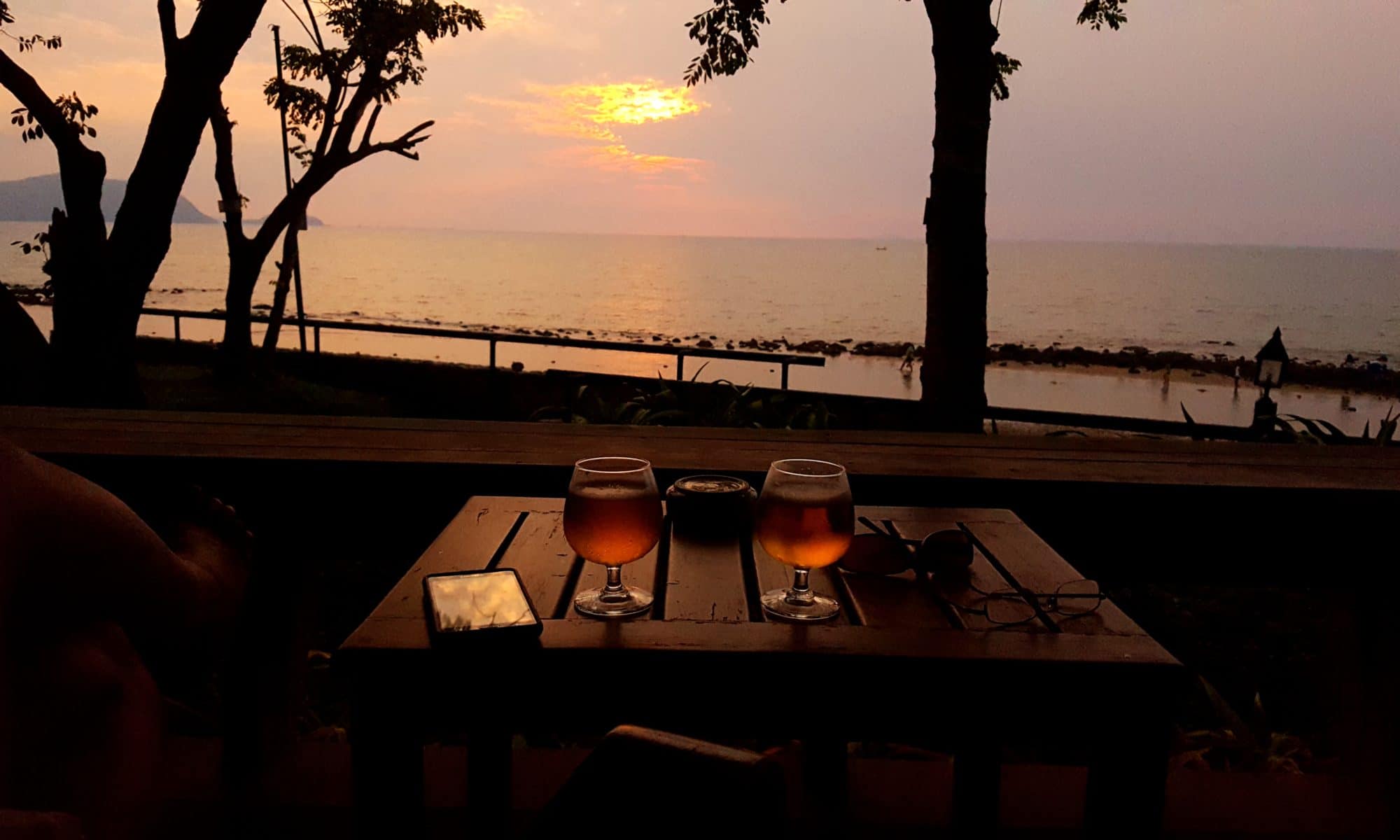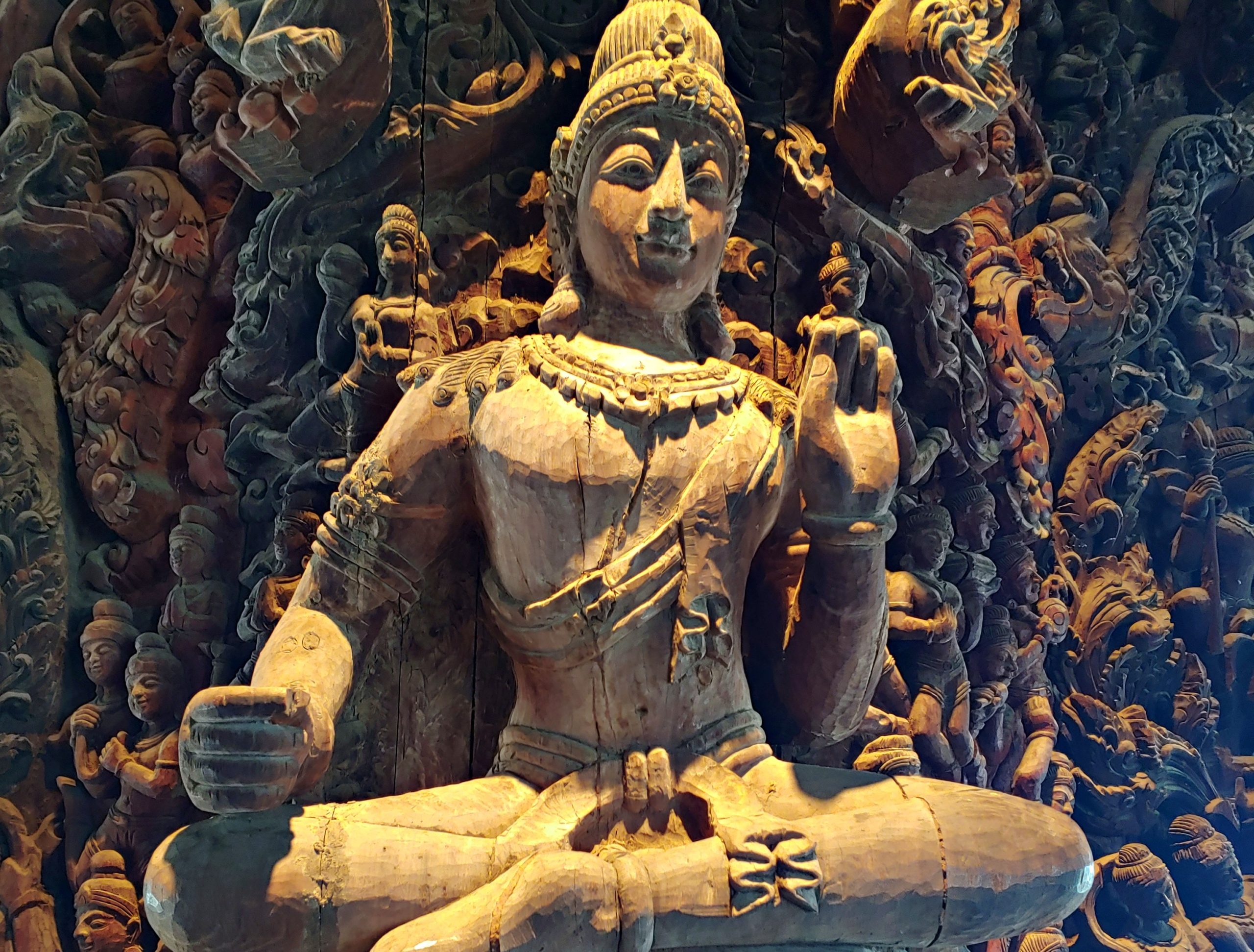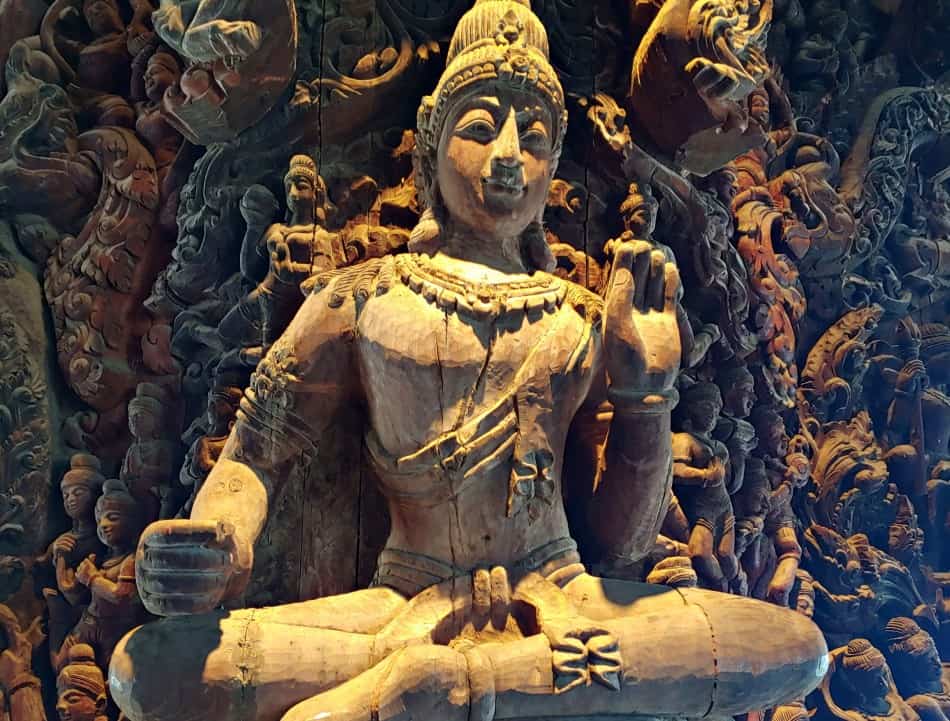
I remember booking my first trip to Thailand. It was exhilarating thinking I was going to a place completely foreign to my eyes and mind. But I also realized I should find out if there was anything I should know about Thai culture before I went. And indeed there was.
So in this post, I will help you with what to do and not to do in Thailand. These etiquette tips are easy to remember, “and to apply” while you are traveling in Thailand.
Although Thai’s don’t expected you to know and follow all Thai etiquette, the more you do, the more you will show respect and be respected in return.
The following list will help make your visit a little more interesting and (maybe even a little less embarrassing).
1. The Monarchy.
Don’t disrespect Thailand’s King and the Royal Family. This is a no, no in Thailand.
Rule #1
Thai people revere and admire their royal family so much that there are pictures of them everywhere in Thailand. You will see pictures in airports, on light poles, in all restaurants, stores and homes.
So, this means no “bad mouthing” the Monarchy (past or present) in any way. No defacing anything with the royals picture on it, including bank notes with the King’s picture on them.
For one example, if you drop a bank note and it starts to blow away, don’t use your feet to stop it. This is considered to be disrespectful to the King. (More on feet later).
Rule #2
Thailand’s lese majeste law is another reason you need to respect the monarchy. This law makes it illegal to insult the Thai royal family in any way. Don’t say anything insulting or critical about the royal family out loud, in private, or on social media. This could land you in prison for an extended stay.
2. Buddha.
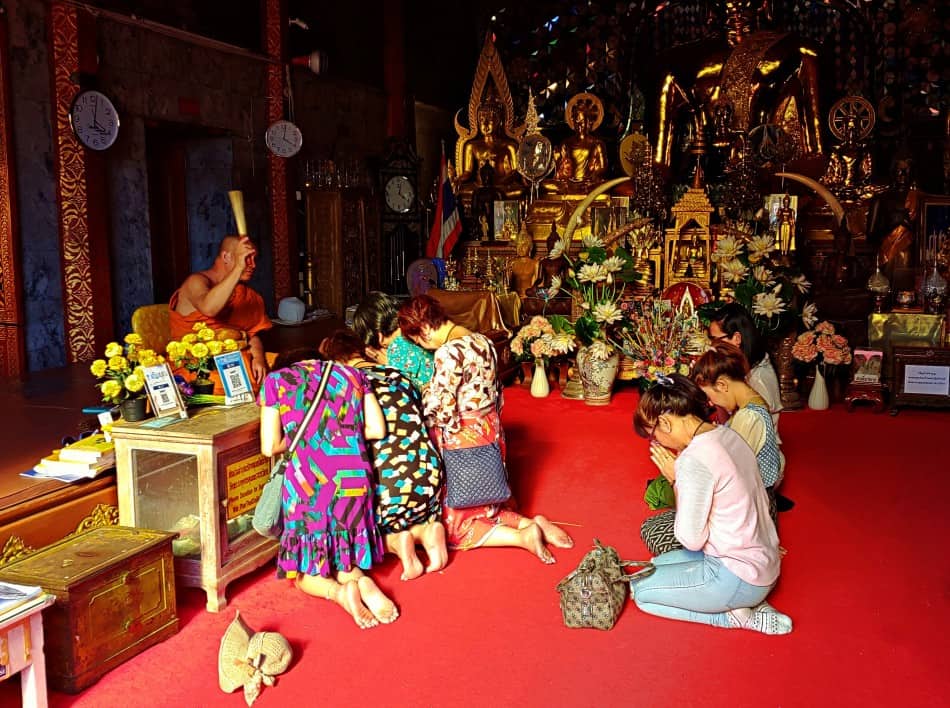
Theravada Buddhism is Thailand’s predominate religion with over 90% of the population identifying as Buddhist. Therefore, to avoid issues, it is important to follow these next simple rules.
Rule #1
More likely than not, you will find yourself at or in a place of worship at some point while in Thailand. There are hundreds of thousands of temples (or “wat’s” in Thai) throughout Thailand and most are beautiful in some way or another, so they are definitely worth a visit.
When visiting a wat, you need to dress appropriately.
- Men should have on long pants or shorts to the knee and wear short sleeve or longer shirts, (no tank tops).
- Women have to cover legs with long pants, dresses or long skirts and wear short sleeve or longer shirts, (no tank tops unless you have a shawl or scarf to cover your shoulders and arms).
- Women can not enter a bot (the restricted area of a temple).
- Everyone needs to remove their shoes and hats while visiting temples.
- Don’t point at monks or images of Buddha with your fingers and especially not with your feet. Also, your feet must be pointed away if you are sitting on a mat in front of a monk or image of Buddha.
- Taking pictures is generally okay, as long as there is no service or ceremony going on at the time.
Rule #2
Buddhist monks are regarded with respect in Thailand.
- Men should never touch a monk unless it is necessary.
- Women should never touch a monk or hand them anything, period. Monks are forbidden to have any physical contact with woman. ( I’m sure if it was a life threatening issue, you would both be forgiven).
- Everyone should let a monk have your seat when on public transportation and women can not sit directly next to a monk anywhere in Thailand.
- Don’t buy sculptures or paintings of Buddha unless they are for a shrine in a business or home. They are not to be used as decoration.
There are even signs at the airports stating these objects cannot be taken out of the country. So, don’t bother buying them when you see them for sale.
3. Clothing
Although I have heard and read that you need to dress conservatively in Thailand, this really just depends on where you are and what the occasion is.
In general, the mid to large cities and islands are touristy and expat areas. So, most of the locals in these areas are accustomed to western dress codes. In fact, just check out the malls in Thailand. They are filled with all the same name brands you can find in the west.
Rule #1
Besides the dress code for temples mentioned before, there are a few things to know.
- Beaches are pretty much anything goes except topless and nude. Don’t even try it.
- Women, Just wear your one piece or two piece bikini or some shorts with a bikini top. Maybe bring a light shawl or something in case it is needed.
- Men can wear swim trunks or shorts and even bikini bottoms (yes, I said that because Iv’e seen it).
- In general, shorts, pants and t shirts are what you will see people wearing in most areas throughout Thailand.
Rule #2
- Workers will be in whatever dress code there job requires and most Thai’s will not be flaunting very much skin. This is especially true in the more rural areas.
You will almost never see more than the lower arms and legs of Thai’s in rural areas because they are more conservative and rarely show body shape or skin.
For this reason, you might even see some locals swimming in their regular clothes.
- Wearing all black is basically for funerals and when in mourning. Not that it makes much sense in tropical Thailand anyway.
4. Feet
Thai’s consider feet the dirtiest part of the body and shoes are considered even more dirty than feet.
- Take your shoes off when entering temples, homes and some stores and offices. Any building where you see shoes outside the door, that is your indicator to follow suite.
- Don’t point with your feet in Thailand. It is considered gross and rude to do so.
- If you are used to putting your feet up on your chair, desk or coffee table at home, don’t do it in Thailand.
- Touching someone with your feet is also considered rude and disrespectful to Thai’s. Also, your feet should never be placed above or near someones head in Thailand, as the head is the farthest from the feet and considered to be clean and sacred.
- If you want to wear shoes inside your home or place of lodging , you should have a pair for inside only and never wear them outside.
- It is also rude to take your shoes off in public places. Public transportation, airports, terminals and places like malls and grocery stores etc, etc.
5. Touching
There are a few things you should know about touching people in Thailand.
Rule #1
- Don’t touch peoples heads in Thailand. The head is considered sacred and also the cleanest part of the human body, so it is disrespectful to touch someones head or hair.
Think before you ruffle a child’s hair too, as that is also deemed offensive.
Rule #2
- Don’t touch people you don’t know when greeting in Thailand, or even to get their attention.
More on greetings later.
- It is also not uncommon for there to be light pushing or shoving in some large crowds during holidays or festivals. This is not the same as touching someones hand or arm in a more personal manner.
6. Affection
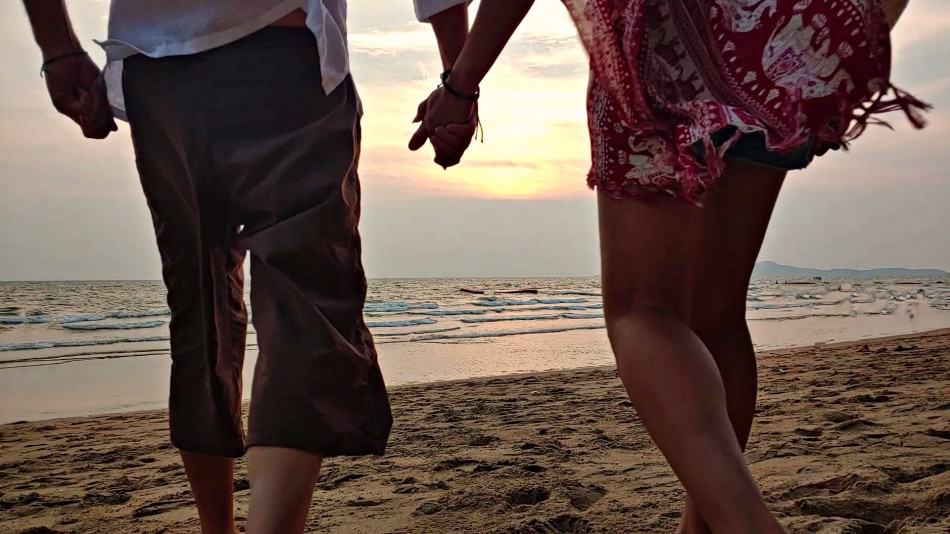
Public displays of affection are not that common in Thailand.
- Public kissing, making out or hugging for long periods of time are frowned upon by most Thai’s. Rubbing your partners arm or back in public is seen as too sexy or romantic.
- Holding hands or walking arm in arm with your partner is generally accepted by many Thai’s as it is not as intimate. It is seen more as a friendly gesture than a romantic one.
Try keeping your more romantic affection for later on in private.
7. Greetings
Saying “hello” and “good by” in Thai, is using the same word.
- Men say “sawatdee-khrap” and Women say “sawatdee-kha”.
- Thai’s greet each other with a “wai.” Although, as a foreigner, you are not expected to initiate the wai gesture, you should still no how to return the wai.
- The wai gesture is placing the palms of your hands together (like you are praying) at chest level and bowing slightly. To show more respect, place your hands higher with the tips of your fingers below your eyes and bow less.
- If someone does not offer the wai, it is okay for men to shake hands and for women, a smile and nod is all that is needed.
- A wai is not used to greet children, laborers, venders or servants and you don’t return a wai to said people. All you need to do is simply smile and nod.
- Thai people will most likely address you by your first name. Example: Mr. Steve or Mrs. Stephanie. This does not imply that they know you, it is just easier for Thai’s than using first and last names.
- The Thai word “khun” is used before a persons first name to show respect and or formality. Example: “Khun Steve or Khun Stephanie”. Although the word Khun is not necessary for close friends and family of equal age, children will use khun for all adults.
- Anyone addressing an elder will also use khun to show respect.
- Last names will only be used for very formal occasions and legal and written communication.
- If you don’t know a persons name, you can simply say “khun”. Example: “khun doctor”, “khun police officer” or just “khun” for people without rank.
8. Don’t point
- Don’t point with your finger, hand or feet. Use your chin and nod up like the west sometimes does to say quietly, “hay, whats up”. This is the only way to point at people, objects or anything else in Thailand.
- When calling someone over to you, extend your arm out with you palm facing down and move your fingers like you are scooping. In the west we do the opposite with our palm facing up and fingers scooping up.
- Waving your hands around when you are talking with someone will give Thai’s the impression that you are angry. If you observe Thai people talking, you will notice they will usually have their arms at their sides or laps.
- Putting your hands in your pockets while talking to someone is also considered rude in Thailand.
9. Dining and Eating.
What utensils do you use in Thailand?
Well, most Thai food is chopped into bite sized pieces, so most of the time you will use a spoon and fork. You will probably never see a knife at the table when eating Thai food.
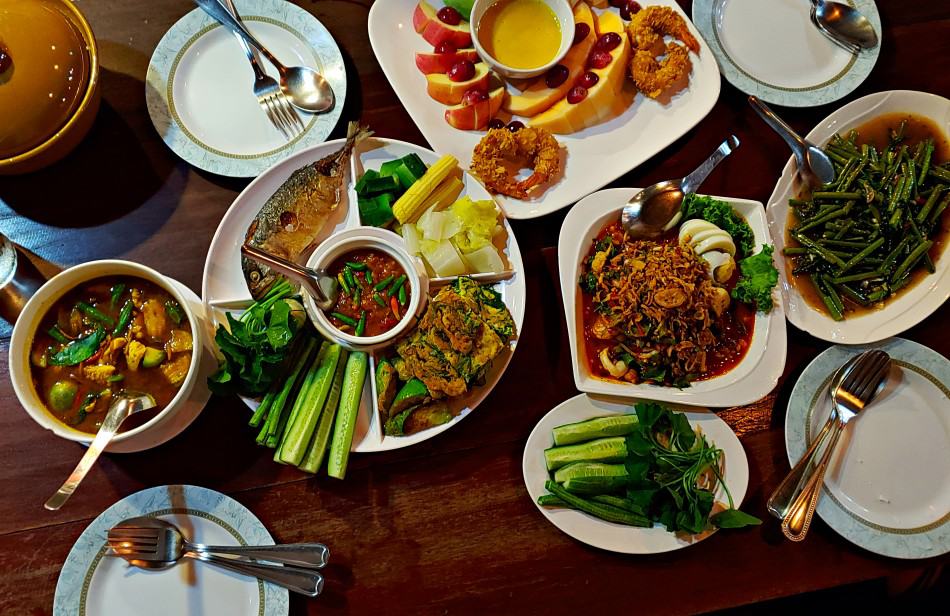
- If you need to cut something that is a little large, use the side of your spoon.
- The spoon is in the right hand and fork in the left, and the fork is only used to push food onto the spoon. Therefore, the fork is almost never used to put food in your mouth.
- Chop sticks are only used for noodle dishes in Thailand.
- Some foods may be eaten with your fingers like for example, sticky rice. But, make sure you use your right hand and never lick your fingers in Thailand.
Family Style Dining.
Most of the time, when eating Thai food, it will be family style. Everyone at the table will share the dishes that are served.
- You will have rice on your plate and you can take a spoonful at a time of whatever dishes you choose, and mix it with your rice.
- Slurping is considered rude if you are eating soup or noodle dishes.
- If you are at a restaurant with friends, and you want to pay your share, you will have to figure this out amongst your selves. Never ask the restaurant to divide up the check.
- Getting the servers attention should be subtle. Say “Nong” (brother or sister) or hold your arm out with your palm down, Don’t snap your fingers or be loud.
- If you are being hosted, that person will usually pay the bill, so don’t try to cover some of the bill unless agreed upon beforehand.
- Also, leave a few bites on your plate so the host will know you are full. If your plate is empty, they will probably egg you on to eat more.
- Don’t use a toothpick at the table unless you cover your mouth with a napkin. Other wise, go to the bathroom to pick your teeth and don’t leave a toothpick in your mouth like some do in the west.
- Tipping is not expected in some areas in Thailand but they are always appreciated. I tip every time, as the service and food are almost always exceptional in Thailand.
10. Drinking Alcohol.
Basically, like just about everywhere, it is not a good thing to see someone stupid drunk. In Thailand, this will get you a lot of embarrassed looks and maybe a night in the slammer if you are in public.
Don’t get me wrong, Thai’s like to drink also, but most will not allow themselves to lose face.
11. Don’t Lose Your Cool
The concept of face plays a large role with Thai people.
- Losing your temper, being confrontational or being very negative in public are considered bad in Thai culture. Try to avoid doing anything that may cause you or another Thai person to lose face.
- Lying and even white lies are also considered rude in Thai culture. Therefore, it is not unusual for Thai people to seem a little more direct than westerners. So, don’t take it personally if that happens.
12. Visiting A Home
- As mentioned before, always remove your shoes when entering a home.
- Step over the threshold in a doorway, not on it, when entering a home. Thai’s believe the threshold keeps bad spirits out of the home.
- Although bringing a gift is not necessary, it is still recommended to show good etiquette. Something small like flowers or fruit is fine.
- If it is a wrapped or bagged gift, don’t expect them to open it in front of you unless you give them the go ahead. Thai’s usually open gifts after the gift giver is gone and the same should apply to you receiving a gift.
- Never give or receive a gift with your left hand, always use your right hand.
13. Smiling
Thai people have been brought up to understand that there are many different reasons to smile. Hence, Thailand is known as “the land of smiles”.
- Most Thai’s will smile when they are embarrassed, for an apology, when they thank you or greet you and during negotiations.
- Even when things go wrong, you will see Thai people smile.
- So, don’t let the smile fool you into thinking everything is okay or that you are getting what you want. Every situation is different and most Thai’s will smile regardless.
- It is not uncommon for a police officer to smile while giving you a ticket.
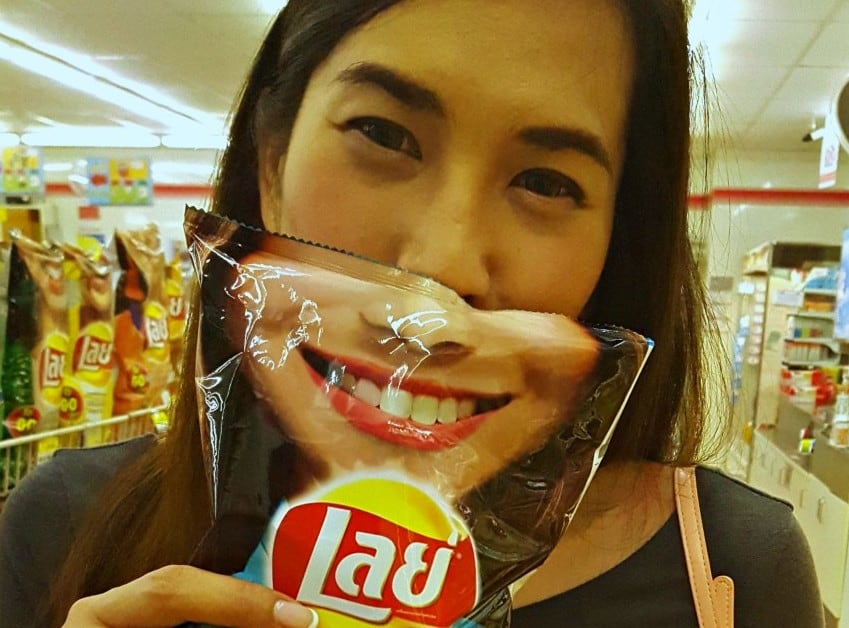
14. The Anthem
- Although I have never heard the Thai Anthem played, when you do hear it, you should stop what you are doing and stand still till it has finished.
- It will be played at sporting events and some public areas, such as parks. You may here it at eight o’clock in the morning and six o’clock in the evening.
15. Business Etiquette
The business culture in Thailand is fairly hierarchical and formal, so relationships may form slower than you expect.
- Make business appointments in advance (a month is common).
- When exchanging business cards, always use you right hand and place it in your wallet or purse.
- Your first meetings will show smiles, some polite conversation and humor, but generally not much will get done.
- Second meetings will probably include an invitation to a meal to become acquainted and gradually get more to the point of business.
- Show respect, humility, good humor and avoid uncomfortable or negative situations.
Conclusion.
So there you have it. Now you are able to go to Thailand and make many Thai’s smile at you with joy and respect.
And, you will feel more at ease knowing that you are not disrespecting the culture of the country that is hosting you. That makes for a better visit to the land of smiles.
Happy good etiquette in Thailand!
